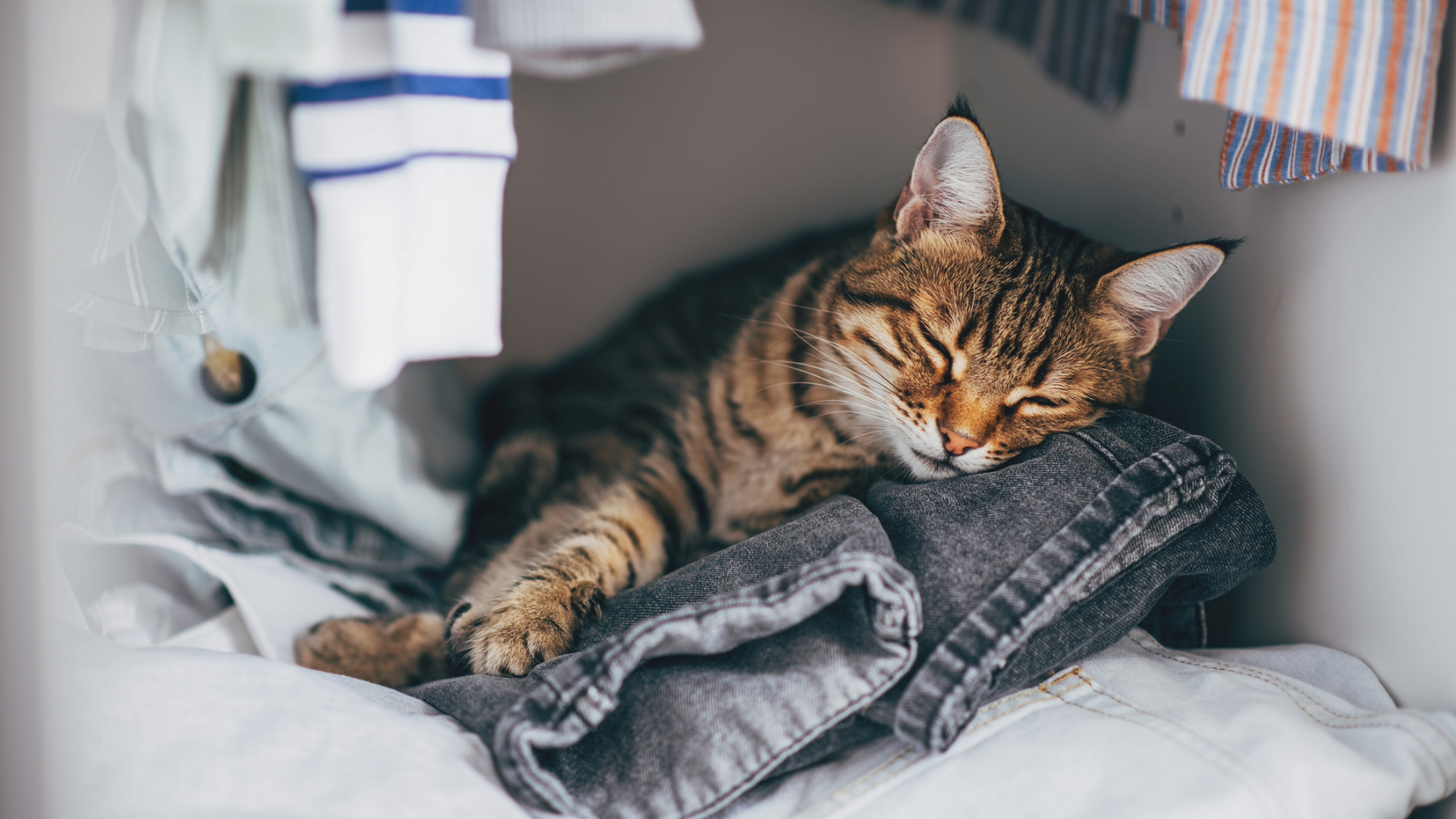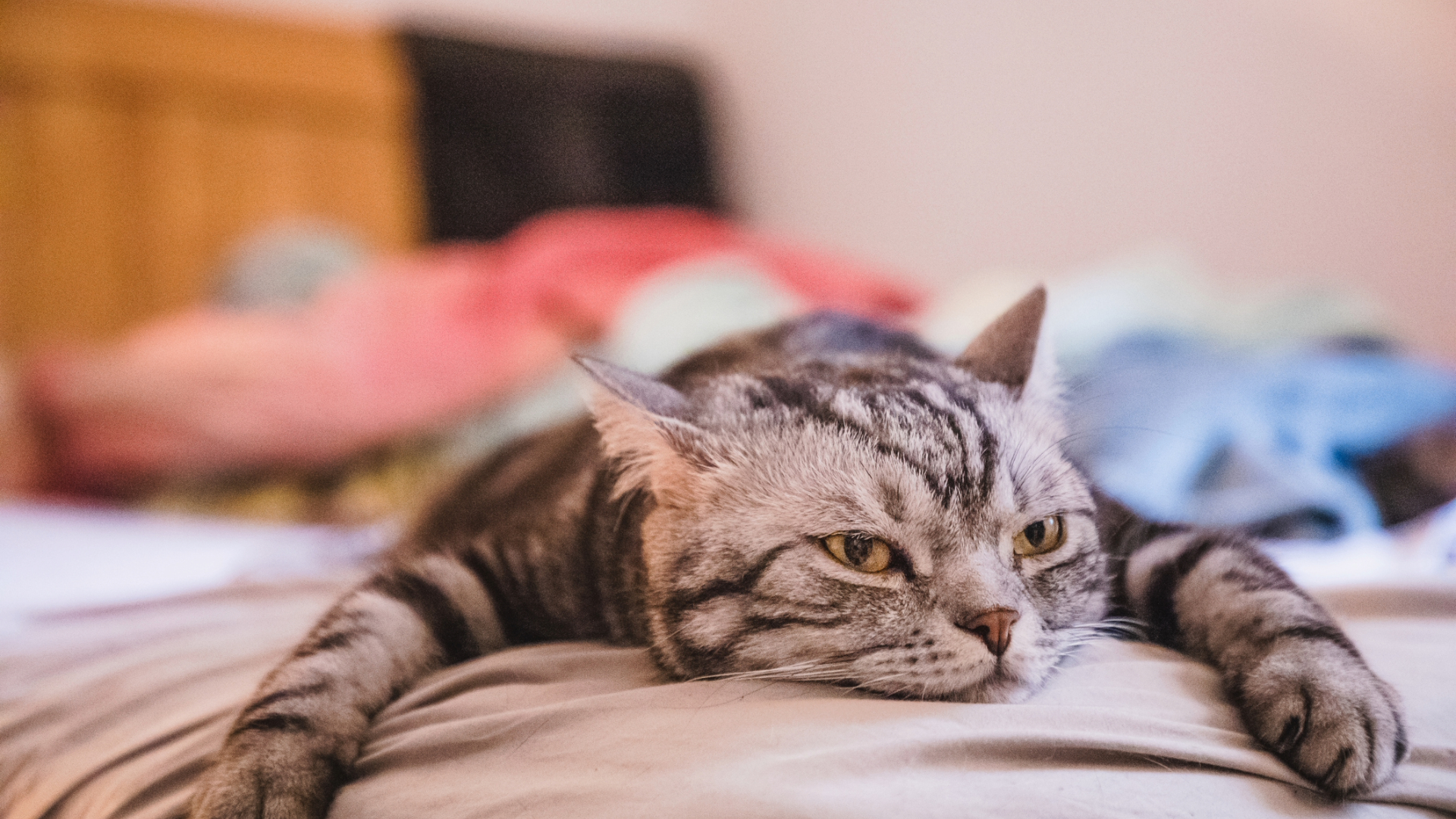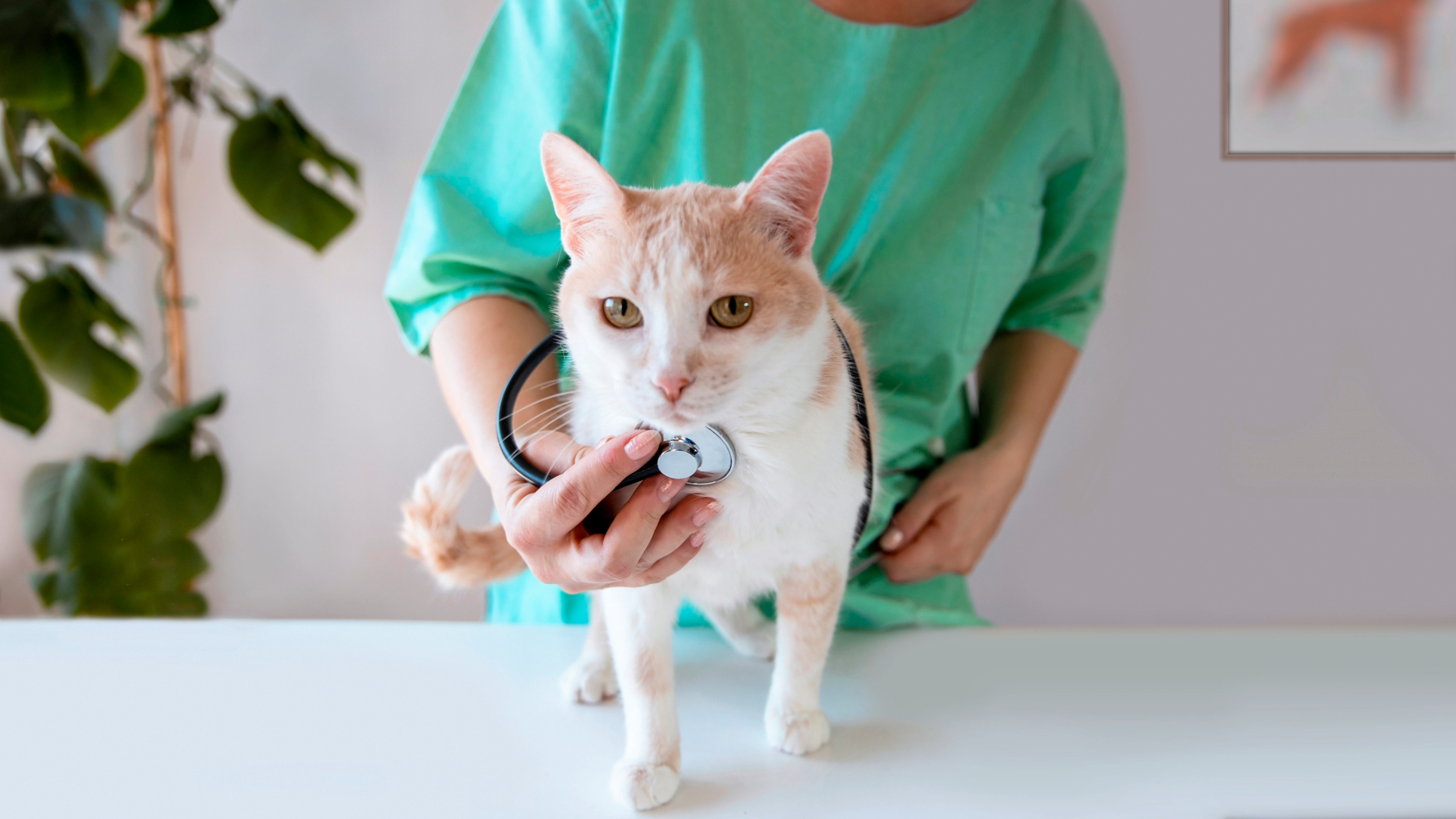Lethargy in cats: Vet’s guide to symptoms, causes and treatment
Lethargy can be a sign of anything from mild illness to serious disease – here's how to help

Get the best advice, tips and top tech for your beloved Pets
You are now subscribed
Your newsletter sign-up was successful
Lethargy in cats is something I have encountered frequently in my 14 years as a veterinary surgeon. It is a very common reason for owners to bring their cats into the clinic, often describing them as “not themselves,” “not quite right,” or just “more sleepy than usual.” Because cats naturally enjoy long naps, it can sometimes be tricky to tell if they’re just resting or if there’s an underlying problem.
In veterinary practice, I’ve seen cases where lethargy was caused by something minor, like a mild viral infection, and others where it was the first sign of a life-threatening condition. Cats are masters at hiding illness, so subtle changes in their behavior or activity levels can be important clues.
The key to helping your cat is recognizing what’s normal for them and spotting changes early. This article will explain what lethargy in cats really means, the symptoms to watch for, the possible causes, and how you can help your cat feel better, as well as when it’s essential to seek veterinary attention.
What is lethargy in cats?
Lethargy in cats refers to a noticeable decrease in energy, enthusiasm, or willingness to engage in normal activities. A lethargic cat may spend more time sleeping, show less interest in play, grooming, or eating, and may seem generally “sluggish” or weak.
It’s important to remember that cats normally sleep for 12–16 hours a day, so sleep alone isn’t a cause for concern. The difference with lethargy is that your cat’s overall responsiveness and interest in their environment changes, even during the hours when they’d usually be active.
Symptoms of lethargy in cats

While lethargy itself is a symptom, you may also notice:
- Decreased appetite: Eating less than usual or not eating food altogether. If you're wondering why your cat isn’t eating, it can often be linked to an underlying illness causing lethargy.
- Reduced grooming: Coat may become dull, greasy, or matted.
- Less interest in play: Your cat won't play and even favorite toys may be ignored.
- Sleeping in unusual places: Particularly hiding away more than normal. A common query is why is my cat hiding?, as this can be a key sign of pain or stress.
- Slow or stiff movements: Reluctance to jump or climb.
- Changes in vocalization: Quieter than usual or, in some cases, more vocal.
- Weight loss: This can be gradual or sudden.
- Changes in toileting habits: You might notice things like urinating outside the litter tray.
If you notice lethargy alongside other signs like breathing difficulty, persistent vomiting, or collapse, this is an emergency and you should contact your vet immediately.
Get the best advice, tips and top tech for your beloved Pets
Causes of lethargy in cats
Lethargy in cats can be caused by a wide range of issues, including:
- Infection: Viral (e.g., feline calicivirus) or bacterial infections can be a huge drain on your cat’s energy.
- Parasites: Fleas, ticks, and worms can cause anemia or general unwellness.
- Pain or injury: Cats in pain may avoid movement and rest more than usual. Learning the subtle signs of pain in cats is crucial for early detection.
- Anemia: A low red blood cell count can leave your cat weak and tired.
- Heart disease: Reduces the body’s ability to circulate oxygen efficiently.
- Kidney disease: Common in older cats and can cause toxin build-up in the blood.
- Liver disease: Affects metabolism and energy levels.
- Endocrine disorders: Such as diabetes mellitus or hyperthyroidism.
- Cancer: Certain cancers can cause fatigue, either directly or through secondary effects.
- Toxin ingestion: Poisoning can cause sudden onset lethargy.
- Stress or emotional changes: Cats can withdraw and rest more when anxious or depressed.
How can I help my lethargic cat?

The first step is to monitor your cat closely and seek veterinary advice. While mild lethargy that resolves within 24 hours may be due to something minor, anything that persists or worsens needs investigation.
Treatment will depend on the underlying cause, and may include:
- Veterinary examination and diagnostic tests: Your vet may recommend blood tests, urine tests, imaging (X-ray or ultrasound), or other checks to identify the cause.
- Parasite control: Regular flea, tick, and worm treatment can prevent lethargy caused by infestations. Ensure you are using the best flea treatment for cats to rule this out.
- Supportive care: This might involve fluids, nutritional support, and pain relief.
- Specific medication: Such as antibiotics for bacterial infections, insulin for diabetes, or heart medications.
- Lifestyle adjustments: For chronic conditions, adjustments to diet, environment, and routine can improve comfort and energy.
YuMove Cat Joint Supplement | Amazon
A high-quality nutritional supplement containing omega-3 fatty acids, antioxidants, and essential vitamins can support immune function and energy levels. YuMove Cat offers joint support for older cats, which may help if arthritis is contributing to lethargy.
Lethargy in cats is a symptom that shouldn’t be ignored. While it may be due to something minor, it can also be the first sign of serious illness. The safest approach is to get your cat checked by a vet, especially if the change is sudden, severe, or accompanied by other symptoms.
By knowing your cat’s normal behavior and acting promptly when something seems wrong, you can help ensure they get the care they need – and hopefully get them back to their lively, affectionate selves as soon as possible.
Read next: Cat sleep positions

Emma Chandley is a vet with 14 years of experience and has a keen interest in surgery. After graduating from the Royal Vet College in London in 2011, she achieved a postgraduate certificate in small animal surgery from the British Small Animal Veterinary Association and Nottingham Trent University. She was then awarded advanced practitioner status in the same discipline by The Royal College of Veterinary Surgeons. She has a black Labrador and two pygmy goats at home.
Edited by Megan Milstead.
This feature was last updated in August 2025 by Emma Chandley.
Emma Chandley is a vet with 14 years of experience and has a keen interest in surgery. After graduating from the Royal Vet College in London in 2011, she achieved a postgraduate certificate in small animal surgery from the British Small Animal Veterinary Association and Nottingham Trent University. She was then awarded advanced practitioner status in the same discipline by The Royal College of Veterinary Surgeons. She has a black Labrador and two pygmy goats at home.

